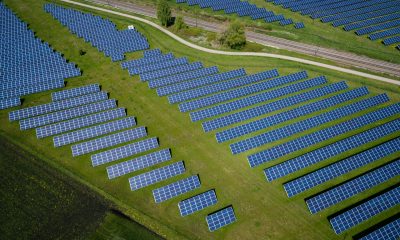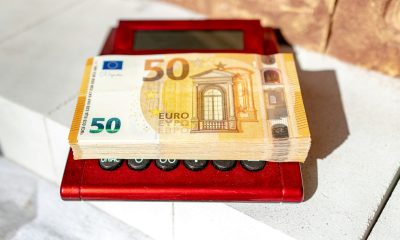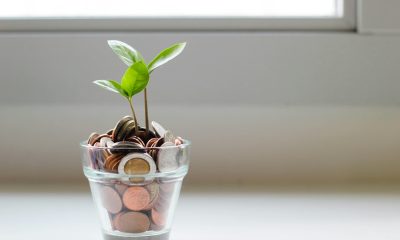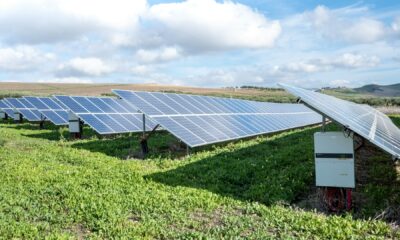Impact Investing
Cariplo Factory Report: Pioneering Green Startups Invent New Supply Chains
Relevant in the Cariplo Factory report is a reflection on the obstacles that hinder the proliferation of initiatives on the ESG front, both by startups and small and medium-sized companies. A regulatory framework that is still complex in some places, fears related to greenwashing, high costs, and lack of transparency of benchmarks.

Sustainability cannot be done without startups. It is the latter, in fact, that write the history of green, launching new businesses and, above all, creating entire supply chains from scratch.
This aspect also emerges from the report Sustainability Waves | ESG Italian Startups made by Cariplo Factory, which takes a snapshot of those startups that, thanks to new technologies and processes, are able to generate sustainability.
Read more about the Cariplo Factory Report and find the latest business news of the day with the Born2Invest mobile app.

The importance of acting sustainably: Cariplo Factory Report
Looking at the numbers of the 115 startups that participated in the survey, it emerges that ESG activities are not limited only to customer awareness, a front on which 61 percent of the startups analyzed are committed.
Increasingly, in fact, adherence to sustainability principles is being translated into strategic choices and actions, such as opting out of suppliers that do not reflect their corporate values and ESG principles (a priority in 97 percent of the cases surveyed). Other data also speak of facts, according to which 77 percent of startups have activated environmental protection programs, while 55 percent already have enabling technologies for reducing their impact on the Planet.
Even with regard to the S for social in the ESG acronym, insights emerge that bode well for the future. Sixty percent of the startups surveyed have a board composed of more than 50 percent women, and 59 percent have an equal or greater number of female employees. In addition, one in three companies has its own code of ethics and one in two has partnerships with charities or nonprofits.
There is still a long way to go, however, on the Governance front, but the small size of the startups, about half of which are in an early stage and growth phase, also weighs in here. Only 16 percent have activated internal policies on anti-corruption matters, 21 percent have employee health policies beyond the mandatory ones, and 33 percent have cybersecurity initiatives.
“These rising numbers, compared to previous years, are the result of a confluence of several elements. There is increased media attention to climate change issues, then there has been an increase in sustainable investments by investment funds, driven by the choice of industry leaders such as BlackRock. And again, there are two other phenomena to record, such as the growth of financing in renewable energy and electric mobility and the push of European directives that have raised the bar for companies on sustainability-related issues,” Bugnotto explained.
Just to demonstrate the concreteness of their choices and actions, startups have increased their efforts on measurement tools, with the use of standardized methods such as LCA, which stands for Life Cycle Assessment. “Measuring the impact of one’s business has three advantages,” Bugnotto continued, “it allows startups to better understand their own strengths and weaknesses, it reinforces their position as ambassadors of change, within their supply chains, and it meets European directives that not only assess startups’ ability to keep up with the market, but increasingly their environmental footprint as well.”

Three green case studies in the Cariplo Factory Report
There are many valuable case studies on the sustainability front contained within the report. For example, is the case of the Pisa-based DND Biotech, which, led by Cosimo Masini, employs indigenous fungi and bacteria to clean up environmental pollutants by means of a rover, an economical and environmentally friendly method compared to other solutions on the market. Founded only in 2021, it has already won major contracts, such as the cleanup of a site in Kuwait polluted by copious oil spills.
Another case study concerns Naples-based Isuschem, which works in a supply chain that is completely circular. Headed by Vincenzo Benessere, it transforms waste oils into bio ingredients that can be reused in various industries, from printing inks, detergents, cosmetics and sunscreens. And again the Turin-based AWorld led by Alessandro Armillotta, a platform that guides and incentivizes people, companies and organizations to improve their habits and reduce their individual impact through education activities and gamification techniques.
Relevant in the report is a reflection on the obstacles that hinder the proliferation of initiatives on the ESG front, both by startups and small and medium-sized companies: a regulatory framework that is still complex in some places, fears related to greenwashing, high costs, and lack of transparency of benchmarks.
“There is also a shortage of experts, entrepreneurs, mentors, and investors to support startups, especially in the nascent stage on how to best decline ESG factors within their businesses. We need advisors who understand issues such as bioeconomy, energy, agrifood, and who know how to preside over them over time. That way startups can open their eyes to certain markets and overcome walls that risk slowing their growth over time,” Bugnotto pointed out.
By hiring these skills, startups can be increasingly on the launching pad to make their own contribution on the ESG front. “Only in this way will they be able to make companies from different industries dialogue and collaborate, create new products and tools for measuring environmental impact, and, most importantly, continue to invent entire supply chains.”
__
(Featured image by geralt via Pixabay)
DISCLAIMER: This article was written by a third party contributor and does not reflect the opinion of Born2Invest, its management, staff or its associates. Please review our disclaimer for more information.
This article may include forward-looking statements. These forward-looking statements generally are identified by the words “believe,” “project,” “estimate,” “become,” “plan,” “will,” and similar expressions. These forward-looking statements involve known and unknown risks as well as uncertainties, including those discussed in the following cautionary statements and elsewhere in this article and on this site. Although the Company may believe that its expectations are based on reasonable assumptions, the actual results that the Company may achieve may differ materially from any forward-looking statements, which reflect the opinions of the management of the Company only as of the date hereof. Additionally, please make sure to read these important disclosures.
First published in StartupItalia. A third-party contributor translated and adapted the article from the original. In case of discrepancy, the original will prevail.
Although we made reasonable efforts to provide accurate translations, some parts may be incorrect. Born2Invest assumes no responsibility for errors, omissions or ambiguities in the translations provided on this website. Any person or entity relying on translated content does so at their own risk. Born2Invest is not responsible for losses caused by such reliance on the accuracy or reliability of translated information. If you wish to report an error or inaccuracy in the translation, we encourage you to contact us.

-

 Crowdfunding2 weeks ago
Crowdfunding2 weeks agoSpain’s Real Estate Crowdfunding Boom: Opportunity, Access, and Hidden Risks
-

 Crypto2 days ago
Crypto2 days agoBitcoin Steady Near $68K as ETF Outflows and Institutional Moves Shape Crypto Markets
-

 Fintech1 week ago
Fintech1 week agoDruo Doubles Processed Volume and Targets Global Expansion by 2026
-

 Business6 days ago
Business6 days agoTopRanked.io Weekly Affiliate Digest: What’s Hot in Affiliate Marketing [Health Trader Affiliate Program Review]

























